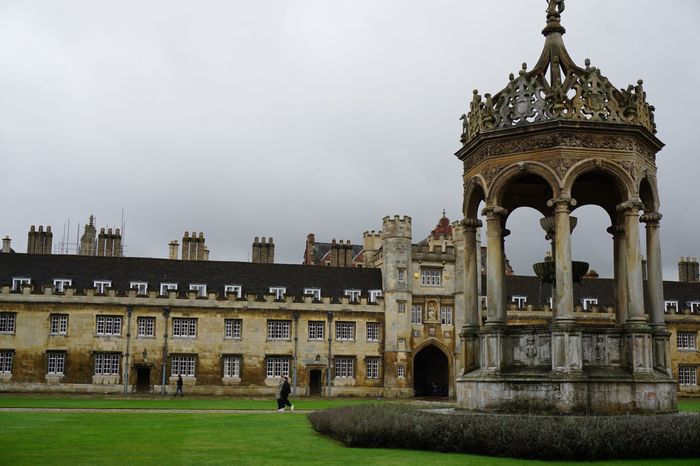Cambridge alumni receive Nobel Prizes in Physics and Chemistry
Geoffrey Hinton won the award for Physics while Sir Demis Hassabis and Dr John Jumper won the Prize in Chemistry

Cambridge University is celebrating Nobel Prize success, after alumni from the University won prizes in physics and chemistry.
Cambridge alumni Sir Demis Hassabis and Dr John Jumper were jointly awarded this year’s Nobel Prize in Chemistry for developing an AI model that can predict proteins’ complex structures.
This comes after yesterday’s announcement that Cambridge alumnus Geoffrey Hinton was jointly awarded the Nobel Prize in Physics for “foundational discoveries and inventions that enable machine learning with artificial networks”.
Geoffrey Hinton, who attended King’s College, received the prize alongside fellow researcher John Hopfield of Princeton University. Hopfield was credited with creating an associative memory structure that can store and reconstruct information.
Using Hopfield’s network as a foundation, Hinton invented a method that can autonomously find properties in data and identify specific components in pictures, which he has dubbed the Boltzmann machine.
The machine is trained by feeding it examples that are likely to arise when the machine is run. It can then be used to systemize images or create new examples of the type of pattern that it was trained with.
Hinton graduated with a degree in Experimental Psychology from King’s in 1970 after being unsure about his degree choice, switching between Natural Sciences, History of Art, and Philosophy. Hinton is now labelled the “Godfather of AI,” and holds the position of Emeritus Professor of Computer Science at the University of Toronto.
In an interview with a representative from The Nobel Prize, Hinton expressed how he was “extremely surprised” by the decision, having heard the news in “a cheap hotel in California, without an internet connection, and with a not very good phone line.”
Hasabis and Jumper developed an AI model called AlphaFold2 which they presented to Google Deepmind in 2020. Using AlphaFold2, the pair has accurately predicted the structure of all 200 million proteins that researchers identified.
Their creation has benefitted over two million people from 190 countries and has a variety of scientific applications, ranging from better understanding antibiotic resistance to creating images of enzymes that can decompose plastics.
Dr John Jumper was a member of St Edmund’s College when he researched theoretical condensed matter physics as an MPhil student at Cambridge’s Cavendish Laboratory in 2011.
Hassabis graduated from Queens’ College, Cambridge in 1994 after reading Computer Science. He was later elected as a Fellow Benefactor and an Honorary Fellow of Queens’ College in 2014. In 2018, the University declared the establishment of a Deepmind Chair of Machine Learning, following a benefaction from Hassabis’s company, and later appointed Prof Neil Lawrence to the position the following year.
Vice-chancellor of Cambridge University, Professor Deborah Prentice said: “I’d like to congratulate Demis Hassabis and John Jumper, who, alongside Geoffrey Hinton yesterday, are all alumni of our University. Together, their pioneering work in the development and application of machine learning is helping transform our understanding of the world around us.”
“They join an illustrious line-up of Cambridge people to have received Nobel Prizes – now totalling 124 individuals – for which we can be very proud,” she continued.
King’s College also commented on the recent news, stating: “We were delighted to hear that Geoffery Hinton (KC 1967) received the Nobel Prize for Physics. King’s has a tradition of pioneers in computer science and his name belongs alongside Alan Turing’s for the impact and influence of his work on global society.”
 Interviews / You don’t need to peak at Cambridge, says Robin Harding31 December 2025
Interviews / You don’t need to peak at Cambridge, says Robin Harding31 December 2025 News / Unions protest handling of redundancies at Epidemiology Unit30 December 2025
News / Unions protest handling of redundancies at Epidemiology Unit30 December 2025 Comment / What happened to men at Cambridge?31 December 2025
Comment / What happened to men at Cambridge?31 December 2025 Features / ‘Treated like we’re incompetent’: ents officers on college micromanagement30 December 2025
Features / ‘Treated like we’re incompetent’: ents officers on college micromanagement30 December 2025 Theatre / We should be filming ADC productions31 December 2025
Theatre / We should be filming ADC productions31 December 2025









